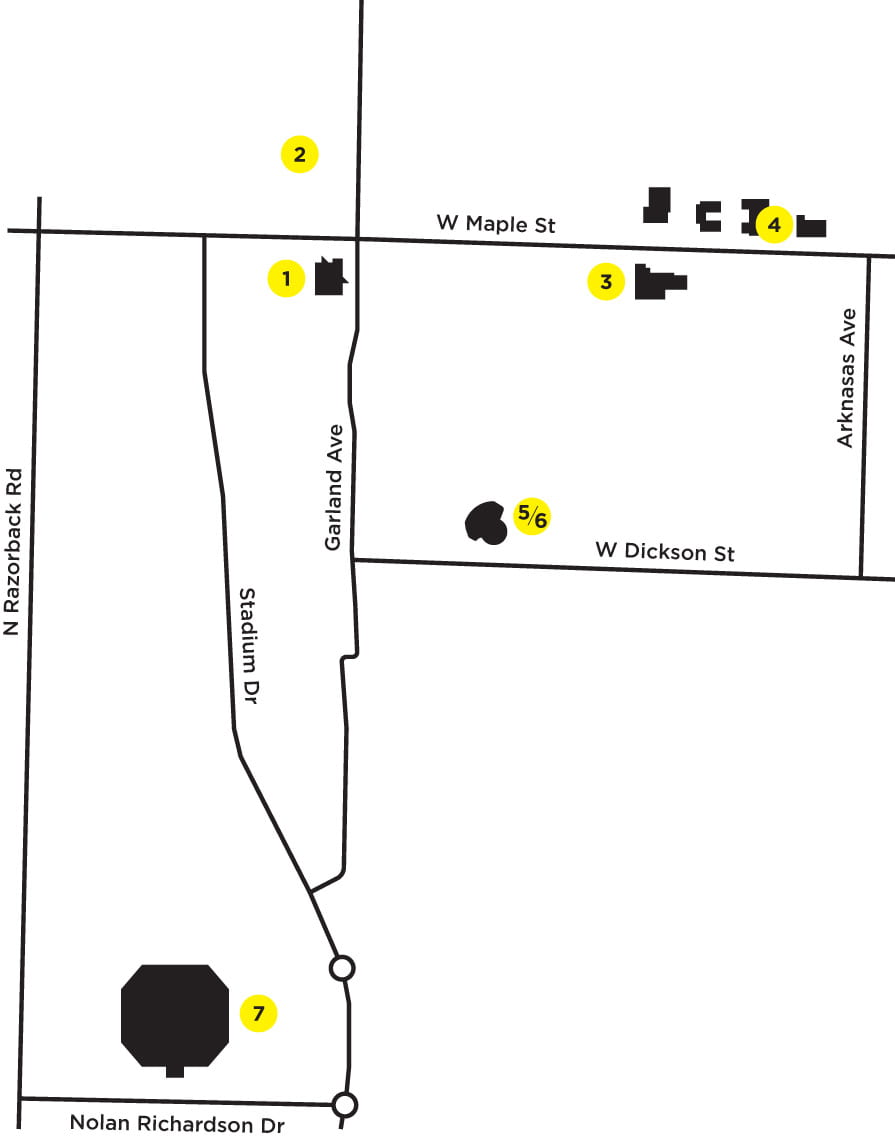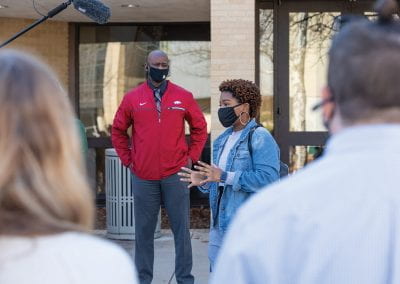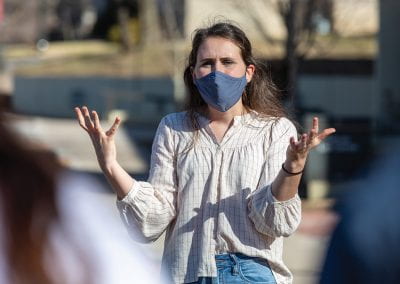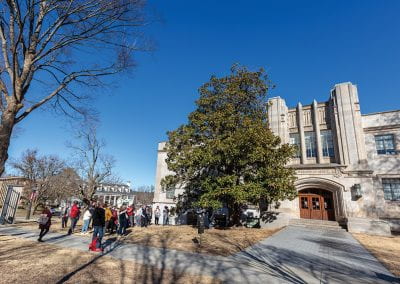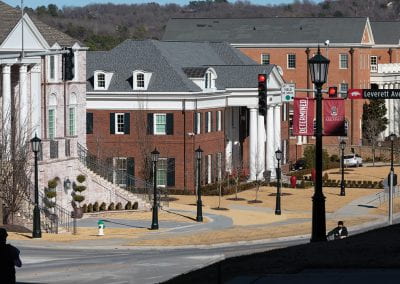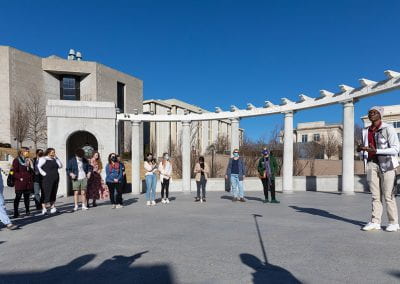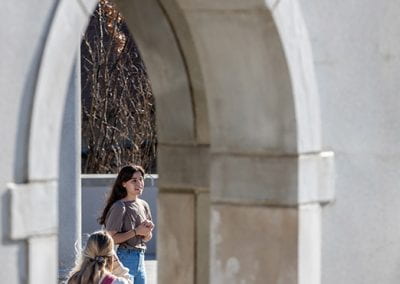Archival materials courtesy Special Collections, University of Arkansas Libraries, Fayetteville.
The Legacy of BAD Times: Highlights from the Tour
By Katie Wilson Powell
Photos by Russell Cothren
In fall 2020 Interim Chancellor Charles Robinson’s forum BAD Times, named for the Black Americans for Democracy newspaper launched in the ’70s, studied Black student experiences at the University of Arkansas. Our Honors College scholars scoured archives, interviewed current students and alumni, and collected stories that enrich our understanding of the Razorback family and its surrounding community. Take the tour and trace the legacy of BAD and its influence on today’s student activists.
1 / Silas Hunt Hall: History Repeats
Nandi Hervey began our tour where many prospective students on campus begin theirs. She compared the demands made by the Black Americans for Democracy in the 1970s to the demands we’ve seen in the past year from the Black Student Caucus here at the university. “Generations of ignorance being passed down is what helped breed the hatred seen in the past as well as today. Invoking cultural change is no small feat, but it’s not impossible either if we as a community work together to better educate ourselves and those around us.” – Nandi Hervey, political science
2 / Lloyd Halls: Housing Integration
George Howard accidentally integrated housing in 1951, when the university was not aware they had accepted a Black man into Lloyd Halls, temporary housing no longer standing. “The integration of dorms did not ensure a welcoming environment for Black students.” – Megan Rodgers, international studies, political science, Spanish and Honors College Fellow
3 / Memorial Hall: Black Student Life
The first Black fraternity on campus, Omega Psi Phi, was begun by BAD students in 1974. These groups were about having fun and celebrating the joy and freedom that can come with college. “Today, Black students remain just 4.5% of the campus population, so they continue to need ways of establishing community, preserving culture and having a voice.”
– Terrell Page, English education and Honors College Fellow
4 / Greek Row: Antebellum Architecture
Inspired by a tweet on the subject from the #BlackatUARK Twitter campaign, Nate Cole explored the ways in which many of our Greek houses are influenced by the South’s antebellum architecture. “What are we trying to say through our forms? What past are we looking to? Is it a Eurocentric past? What timelines are we erasing?” – Nate Cole, architecture
5 / Greek Theater: “Dixie” Protests
Several students researched the 1969 protests surrounding the playing of “Dixie,” a former fight song for the university and the Confederate anthem. Sanford Tollette II, the U of A’s first Black drum major, helped lead discussions with members of the band that succeeded in removing “Dixie” from the playlist. “Imagine the band is on stage and students are rushing the band trying to stop them from playing the song. They had bottles thrown at them, racial slurs hurled at them, and they just had to sit there and take it.” – Ahmad Pace Jr., mathematics and Path Scholar
6 / Greek Theater: Beat Texas Week
Sydney Nichols shared another University of Arkansas tradition with racist impact. “Beat Texas Week” was an annual week of “celebration” leading up to the famed rivalry between Arkansas and Texas. Student leaders in the ’70s described the atmosphere of the week as one resembling “the Civil War Days,” in which jeers, insults and even physical harm were regularly inflicted upon Black students. “The white student’s perspective was that this is a week of fun and tradition for them, and a time to let loose, but that was definitely not the reality for African American students.” – Sydney Nichols,
art history and creative writing and Honors College Fellow
7 / Bud Walton Arena: Players Protest
Smit Patel ended our tour with a discussion of the 2016 protests at Bud Walton Arena, where members of the women’s basketball team chose to kneel during the national anthem to bring attention to unjust treatment of Black Americans by the police. “We have a long way to go when it comes to supporting minority students. … Everyone should be respected, regardless of their color, class, creed or background. We’re all Razorbacks! We’re all University of Arkansas students. We are a community.” – Smit Patel, biomedical engineering
Want to learn more about the students’ research? Take their online tour.


